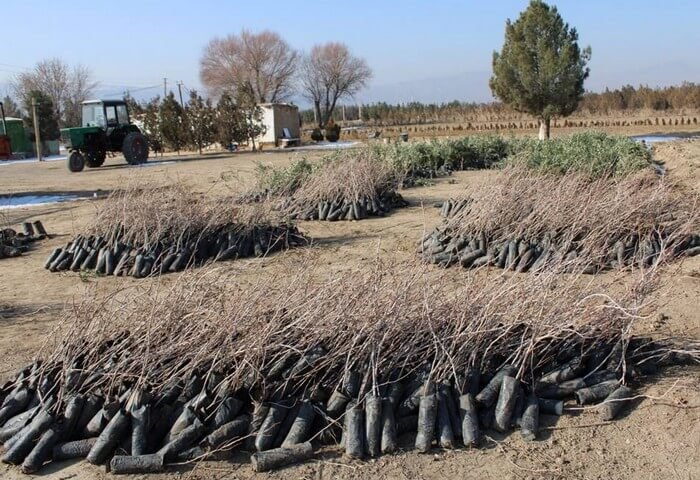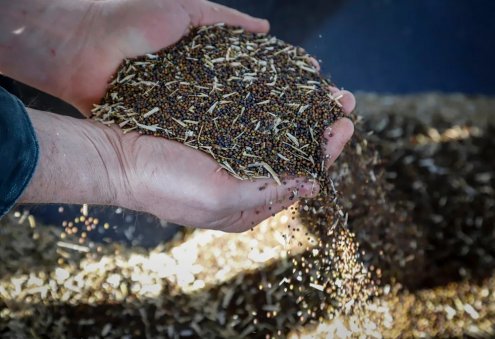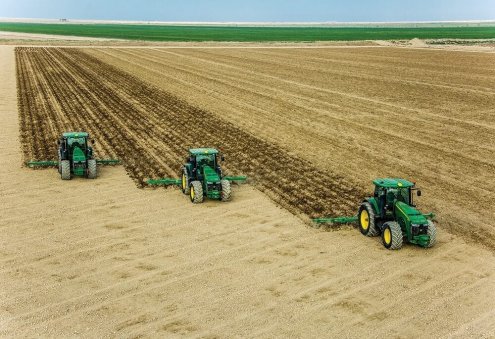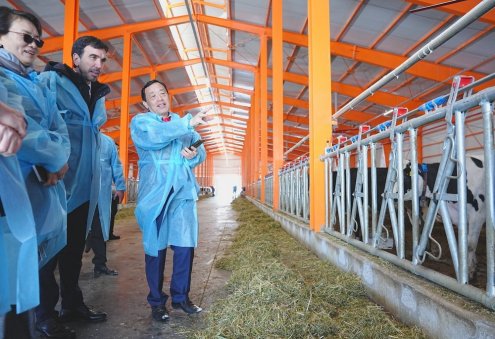Within the framework of the project from the FAO and Global Environment Facility (GEF), two nurseries (1 hectare each) and a demonstration plot (about 3 hectares) were created in January 2023 at the production sites of forestry enterprises of Baherden and Dashoguz, and at the training farm of Turkmen Agricultural University after S.A. Niyazov to facilitate the National Forest Program of Turkmenistan.
These works were particularly carried out within the FAO/GEF project “Integrated Natural Resources Management in Drought-prone and Salt-affected Agricultural Production Landscapes in Central Asia and Turkey” (CACILM-2), the FAO said in its Thursday press release.
The nurseries will grow various types of planting material – seedlings of fruit, deciduous, coniferous, desert and other trees, shrubs and semi-shrubs, and the demonstration site will implement various agromeliorative measures on secondary salinity reduction, and test modern methods of growing salt- and drought-resistant crops for their further distribution in the region.
In order to expand horticultural areas in different soil and climatic conditions of Turkmenistan, the project also purchased 25,000 seedlings of fruit and berry crops for the Ministry of Agriculture and Environmental Protection of Turkmenistan, the main partner of the project to implement the National Forest Program. The seedlings will be grown in the country's forestry plots and in the demonstration plot built on the basis of the educational farm of the Turkmen Agricultural University named after S. A. Niyazov.
In particular, it is planned to grow seedlings of salt and drought tolerant fruit crops (quince, silverberry, jujube) and other crops (safflower, quinoa, alfalfa, barley, etc.) to reduce salinity and increase soil fertility.
Expanding the planting of fruit trees on the land plots of forest farms and obtaining environmentally friendly fruit crops – apples, pears, cherries, grapes, pomegranates and cherries will provide farms with additional income as well as increase employment of local communities, according to the statement.
This will prevent and significantly reduce the tendencies of secondary salinization, wind and water erosion, as well as lead to increased crop yields in irrigated areas.
Launched in May 2018, the CACILM-2 project with a budget of over $75 million is one of the largest sustainable natural resource management initiatives co-financed by the governments of the participating countries.


















